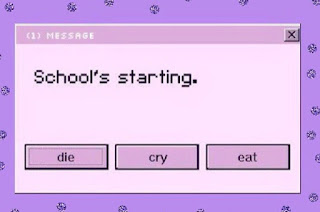It's not what we often mistake for it to be. Its not just another term for "organized".
Obsessive and compulsive traits on their own are not a mental illness — we all have things that perhaps we obsess over. But for a person with OCD they can’t just “snap out of it.” .The brain of a person with OCD actually functions differently, essentially getting “stuck” on a thought. These thoughts are linked with intense anxiety driving the individual with OCD to engage in compulsive behaviour which is their only escape.
The way OCD is portrayed is the worst.
What exactly is "OCD"?
Obsessive compulsive disorder (OCD) is a mental health disorder that influences human beings of every age and walks of life, and takes place when someone gets stuck in a cycle of obsessions and compulsions. Obsessions are unwanted, intrusive thoughts, images, or urges that cause intensely distressing feelings. Compulsions are behaviours an individual engages in to try to get rid of the obsessions and lower their distress.
OCD is constant unwanted intrusive thoughts and compulsions you have trouble controlling and obsessions that completely take you over.
And what is it NOT?
OCD is not washing your hands 10 times a day and neither is it being a "neat freak".
People saying things like “I’m OCD about *something* ” is inaccurate and further spreads inaccuracies about OCD. You cannot be “OCD about certain things.” OCD takes you over and it is an extremely distressing disorder.
NOT EVERYONE HAS IT.
It's not the same as being organized, as I said before.
And for God' sake, its not a "quirk".
How can you help a person suffering from it?
1. Try to relate.
People have a natural urge to connect with one another. In certain areas of life, this can be quite comforting! However, if someone is trying to open up about their troublesome obsessions, it’s usually not helpful to say something like “I understand. I am also so OCD. My closet is always colour-coordinated!”
2. Educate yourself on the disorder.
It’s a highly misunderstood disorder, making it that much harder to handle. By understanding its common manifestations, you can help destigmatize the disorder. Also, if you know OCD’s common tricks and traps (like reassurance-seeking), you can help the other person acknowledge and move beyond their urges and compulsions, and help them challenge the black-and-white thinking that OCD encourages.
3. Use supportive communication
When you communicate with your loved one you need to be supportive, but don’t approve or validate her behaviours related to OCD. Always avoid judging and criticizing the obsessions and compulsions of the OCD sufferer. Judgement and criticism is likely to force your loved one to hide their disorder; this makes it much harder to get them the proper treatment.
We all make mistakes. I have too. It's only human. But from now on it's important to be more mindful of your vocabulary, learn from your mistakes and stop using it in the wrong context.
Okay so that was it for today! Drop your views and situations where you might have experienced someone misusing the term. Don't forget to share and subscribe for more content and drop some suggestions too!
Signing off,
Kuhu :)





Comments
Post a Comment